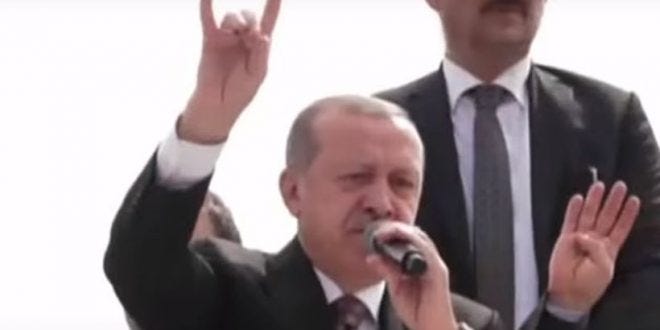Since its establishment as a republic in 1923, Turkey has always had a strong ultra-nationalist movement, most of which has historically been based upon the ideas and image of the nation’s founding father, Mustafa Kemal Atatürk—who himself was a largely secular nationalist that looked upon the rigors of Islam and eastern ways with some measure of disdain and a perception of “backwardness," trying to westernize the new country after the fall of the Ottoman Empire and until his death in 1938.
From the time of its origins in which the idea of a Turkish state was planted in the minds of an elite group of young Turkish Ottoman officers, to the present, this ultra-nationalist movement and its various subsets have evolved. Notably, from the late 1960s-1970s until a violent military coup d'état in 1980; the ultra-nationalists formed street-level militant bands and underground organizations under the broad banner of the Grey Wolves—easily categorized as a youth neo-fascist movement whose main focus was armed guerrilla conflict against left-wing student youth movements in the mid-20th Century, particularly Kurdish-led and other minority left-wing groups, but also to include ethnic-Turkish Marxists and socialist groups in general (many of whom themselves were militant). The 1980 military coup and suspension of democracy was meant to put an end to a volatile decade of right-versus-left political violence in the country that included numerous bombings, assassinations, massacres, and other clandestine acts of organized violence. However, it seems that the left bore the brunt of the military’s crackdown, and many of the nationalist militants came away unscathed.
The Grey Wolf movement persists to this day as the youth movement of the parliamentary far-right Nationalist Movement Party (MHP—an AKP coalition partner) and is arguably quite strong. That said, it has itself once again evolved from the secular, nationalist, Kemal-centric days. Since the rise of President Recep Tayyip Erdoğan’s Justice and Development Party (AKP), and particularly since the bloody abortive coup attempt in July 2016—presumably organized by an odd coalition of traditional Kemalist officers and military followers of former Erdoğan ally-turned-rival-in-exile and fellow Islamist, Fethullah Gülen—which Erdoğan survived, he subsequently made dramatic reforms to the armed forces, purging putschist elements and perceived collaborators. Having survived the attempt on his life and on the AKP administration itself, Erdoğan advanced his project of bringing Islam back into mainstream cosmopolitan Turkish society where secularism had once prevailed, and the Grey Wolf movement has itself included a previously shunned Islamist influence into its pan-Turkic ideology. In fact, one of Erdoğan’s more masterful domestic political chess moves was to sew together the devout Islamic Turkish community with that of a post-Kemalist ultra-nationalism that both encompassed the ideals of the early Republic, along with those that would once again place Istanbul and Turkey itself as the seat of global Islam outside of Mecca.



